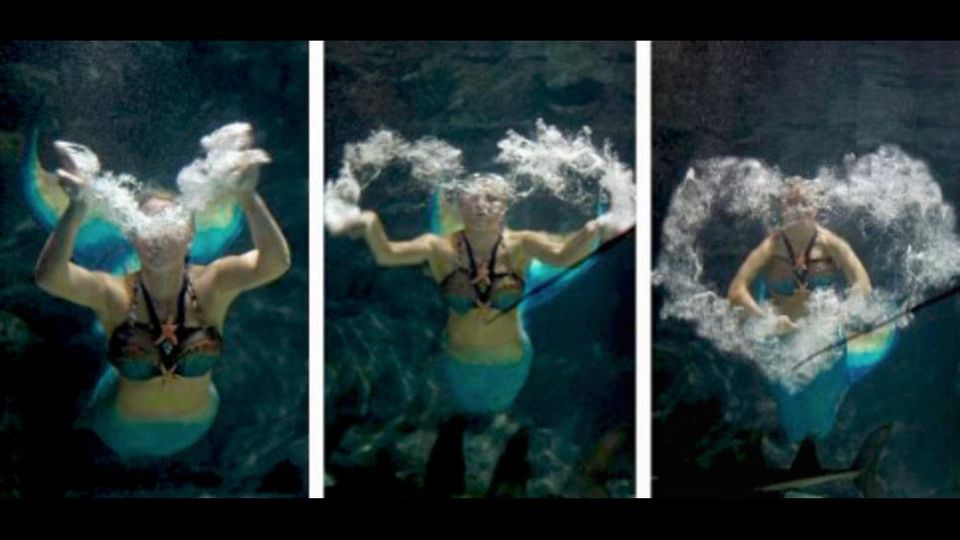Tracy C Davis: Performing Mermaids
This event has passed

Creative, technological, and biomechanical developments since 2000 mean that mermaids have ceased to be mythological.
Indeed, they are a new category of performing artist on exhibit in aquariums around the world: emergent multiple-species performance practitioners and an aesthetic phenomenon epitomizing challenges to ecology, categories of the human, and transgressions of environmental boundaries.
These mermaids do not simply document a zoomorphic (decorative) category but have evolved a zoonomic (physiological) identity role. This represents an epistemic shift from fantasy to knowledge techniques. Mermaids perform both as “wet” (in tanks) and “dry” (in discussion forums) interpreters, adjuncts of aquariums’ education departments. The professional mermaid appears underwater in artificially created biotopes, and on land is a particularly communicative interlocutor between sea creatures and human visitors.
They are, essentially, marine animals who speak languages understood by spectators (choreographic, gestural, and spoken), remain immersed for awe-inspiring periods, and take up ontological authority not just to act like but also speak for oceans which they inhabit as seemingly indigenous intermediaries.
To elaborate on these issues this talk addresses three cases of mermaid shows in aquariums (in Germany, Denmark, the USA), studied both by means of ethnographic interviews and performance analysis techniques.
Tracy C. Davis is a specialist in performance theory, theatre historiography, and research methodology. She works with students in various programs, including English, Theatre and Drama, Performance Studies, Musicology, History, and Rhetoric. Her active research projects are on nineteenth-century Liberalism, scenography, theatre and anthropology, and professional mermaids.
Event price
Free, but booking required
